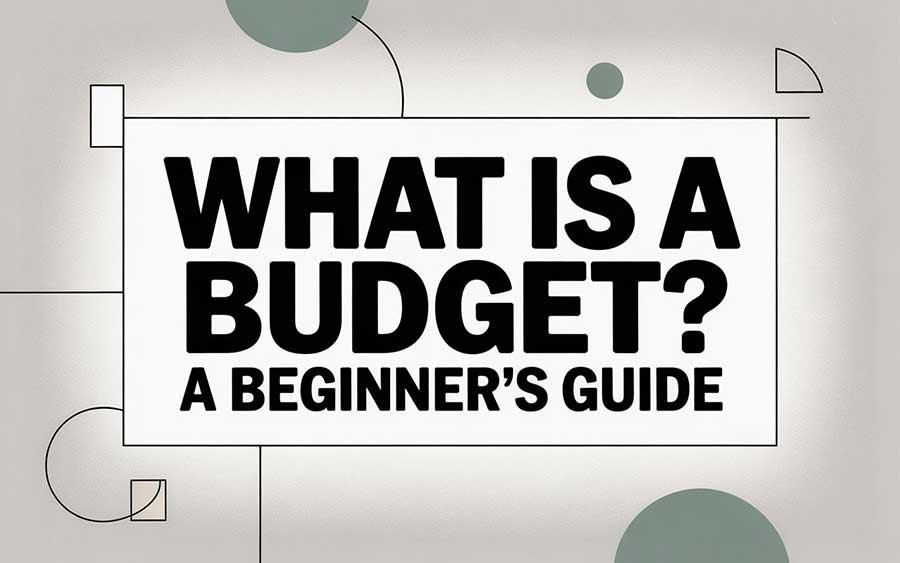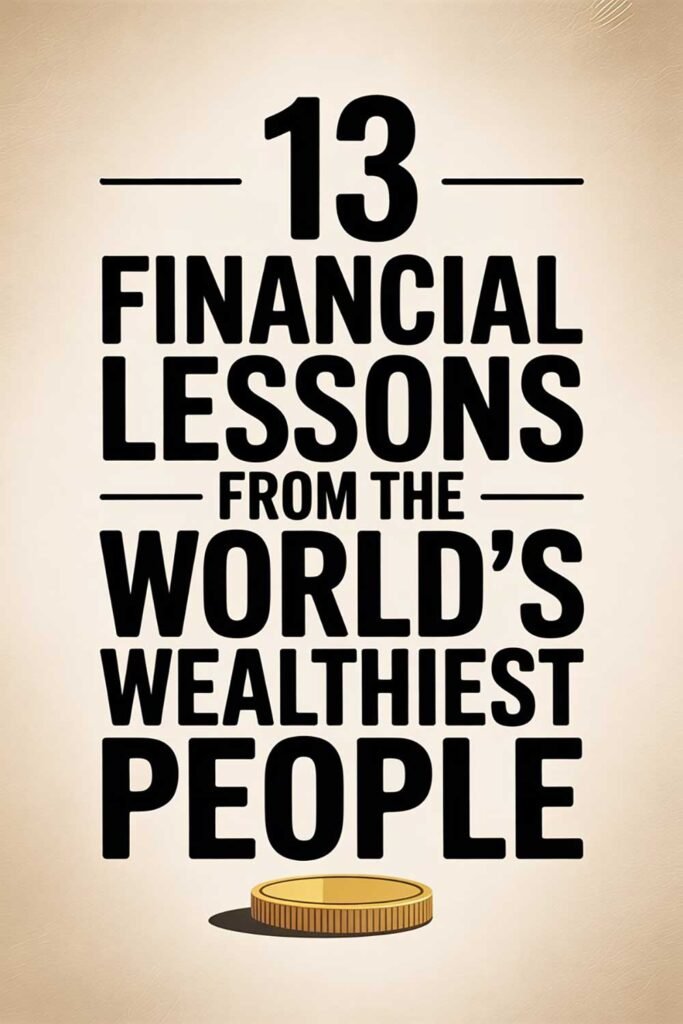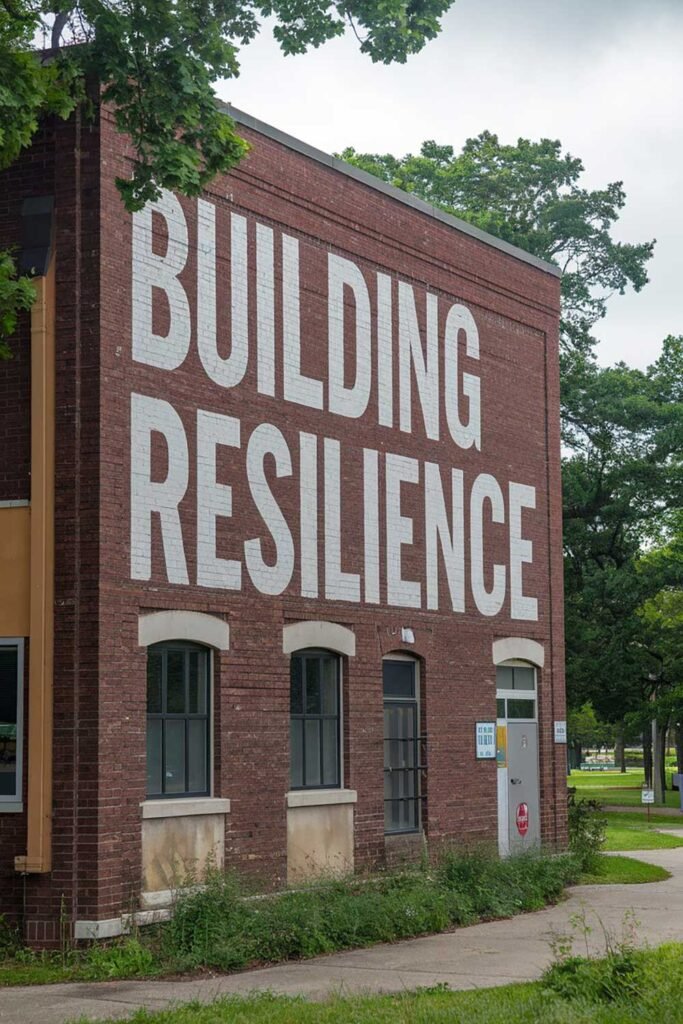
What Is a Budget? A Beginner’s Guide
If you’ve ever felt like your paycheck disappears the moment it hits your bank account, you are not alone. Many people work hard, earn decent money, and still find themselves asking, “Where did all my money go?” The answer, more often than not, is the absence of a clear, intentional budget.

Creating a budget isn’t about restriction or saying “no” to the things you enjoy. It’s about freedom—freedom from financial stress, freedom to make choices confidently, and freedom to build the future you want. This expanded beginner’s guide will show you everything you need to know to understand what a budget is, how to create one step-by-step, avoid common mistakes, and use real-life examples and quotes to stay inspired along the way.
What Is a Budget?
A budget is simply a plan for how you’ll spend your money. It helps you track income, control spending, and allocate funds to meet your needs, pay off debts, build savings, and enjoy life responsibly. Think of a budget as your personal blueprint for financial success.
Without a budget, your money controls you. With a budget, you control your money.
It doesn’t matter if you’re a college student living off part-time income or a dual-income family with a mortgage—a budget is the foundation for financial peace.
Why Budgeting Is So Important
Here’s what budgeting can do for you:
1. Give You Clarity
No more wondering where your money went. A budget shows you exactly how much you have and where it’s going.
2. Reduce Financial Stress
When you have a plan, you don’t have to fear bills, emergencies, or unexpected costs. You’re prepared.
3. Help You Reach Your Goals
Saving for a home? Paying off debt? Planning a vacation? A budget makes it real by breaking the goal into manageable steps.
4. Prevent Overspending
A budget creates natural boundaries. You’ll know when to stop before the damage is done.
5. Improve Relationships
Money fights are a leading cause of stress in relationships. Budgeting together opens communication and builds trust.
Real-Life Example: Maria’s Story
Maria, a 33-year-old single mother, earned $3,200/month and constantly felt behind. She was juggling rent, childcare, student loans, and groceries, with zero savings. After attending a free budgeting workshop, she created a basic spreadsheet.
She quickly realized she was spending over $400/month on small impulse buys and food delivery. She set up a meal plan, limited takeout, and started using the envelope method for groceries and personal spending.
Within six months:
- She paid off one credit card
- Built a $750 emergency fund
- Cut her financial anxiety in half
Maria now says, “I didn’t need more money. I needed a plan.”
How to Create a Budget in 9 Easy Steps
Step 1: Write Down Your Income
Start with your after-tax (net) income. Include:
- Job income
- Side hustle income
- Child support or alimony
- Government aid
If your income varies, use a 3-month average.
Step 2: List ALL of Your Expenses
Track every dollar for at least a month.
Fixed Expenses: Rent, insurance, phone bills, car payments
Variable Expenses: Groceries, gas, dining out, entertainment
Irregular Expenses: Holidays, birthdays, annual subscriptions, car maintenance
Step 3: Categorize Expenses Into Needs, Wants, and Goals
Needs: Rent, utilities, food, transportation, minimum debt payments
Wants: Subscriptions, hobbies, dining out, travel
Goals: Debt repayment, savings, investing
Step 4: Choose Your Budgeting Method
Pick the system that fits your style:
1. Zero-Based Budgeting
Assign every dollar a job until your income minus expenses equals zero.
2. 50/30/20 Rule
- 50% for needs
- 30% for wants
- 20% for savings/debt
3. Envelope System
Use cash in labeled envelopes for categories like groceries, gas, and entertainment.
4. Pay Yourself First
Set aside savings before spending on anything else.
Step 5: Build an Emergency Fund
Start with $500-$1,000. Long-term goal: 3–6 months of expenses. Treat this as a non-negotiable expense.
Step 6: Track Your Spending Daily or Weekly
Use tools like:
- YNAB (You Need A Budget)
- EveryDollar
- Mint
- Spreadsheets or pen and paper
Awareness is the first step to change.
Step 7: Plan for Irregular Expenses
Set aside money each month for:
- Birthdays
- Holidays
- Car maintenance
- Back-to-school
- Insurance renewals
This prevents these “surprises” from becoming debt triggers.
Step 8: Adjust Every Month
No two months are the same. Review and revise your budget monthly. Make room for unexpected events and celebrations.
Step 9: Stay Consistent
Progress won’t happen overnight. Budgeting is a habit that builds results with time. Stick with it even when you feel discouraged.
Common Budgeting Mistakes to Avoid
- Forgetting irregular expenses (like Christmas)
- Being too strict (you need room for joy)
- Not reviewing it regularly (it needs maintenance)
- Setting unrealistic goals (start small!)
- Trying to copy someone else’s budget (make it personal)
Real-Life Example: James and Tasha Pay Off $22,000
James and Tasha, a couple in their early 30s, made $5,800/month combined but carried over $22,000 in credit card and student loan debt. They always felt broke.
After taking control of their finances with the zero-based method, they:
- Cut eating out from $600 to $150
- Started budgeting weekly on Sunday nights
- Took side jobs for extra income
Two years later, they paid off every cent and now put $1,000/month into investments.
James said, “We used to think budgeting meant restriction. Now it means peace of mind.”
20 Motivational Quotes About Budgeting and Money Management
“A budget is telling your money where to go instead of wondering where it went.” – Dave Ramsey
“You must gain control over your money or the lack of it will forever control you.” – Dave Ramsey
“Do not save what is left after spending, but spend what is left after saving.” – Warren Buffett
“Beware of little expenses. A small leak will sink a great ship.” – Benjamin Franklin
“Your budget is a reflection of your priorities.” – Unknown
“A penny saved is a penny earned.” – Benjamin Franklin
“The best way to predict your future is to create it.” – Peter Drucker
“Budgeting isn’t about limiting yourself—it’s about making the things that excite you possible.” – Unknown
“Live like no one else now, so you can live like no one else later.” – Dave Ramsey
“When you know where your money is going, you gain peace of mind.” – Unknown
“Discipline is the bridge between goals and accomplishment.” – Jim Rohn
“Don’t tell me what you value. Show me your budget.” – Joe Biden
“You can’t out-earn poor spending habits.” – Unknown
“Budgeting is the first step toward financial freedom.” – Unknown
“Money is a terrible master but an excellent servant.” – P.T. Barnum
“Without a budget, it’s easy to feel broke no matter your income.” – Unknown
“Financial peace isn’t about how much you earn, it’s about how you manage it.” – Unknown
“Small leaks sink big ships. Track your spending.” – Unknown
“Success is the sum of small efforts repeated daily.” – Robert Collier
“Budgeting isn’t punishment. It’s protection.” – Unknown
🧠 Picture This
Picture yourself sitting at your kitchen table, opening your banking app with a smile instead of anxiety.
Your bills are paid. You have money saved. You have a plan. No more guessing. No more financial guilt. You know what you can spend, and what you’re saving for.
You’re not overwhelmed by money anymore—you’re empowered by it.
All of that began with one habit: creating a budget.
🗣 Please Share This Article
If this article helped you understand the power of budgeting, share it with someone who could use a little clarity, control, and confidence in their financial life. You never know who might need that first step.
⚠️ Disclaimer
This article is for informational purposes only and based on personal experience and general financial education. It is not financial advice. Always consult a certified financial advisor before making financial decisions.






